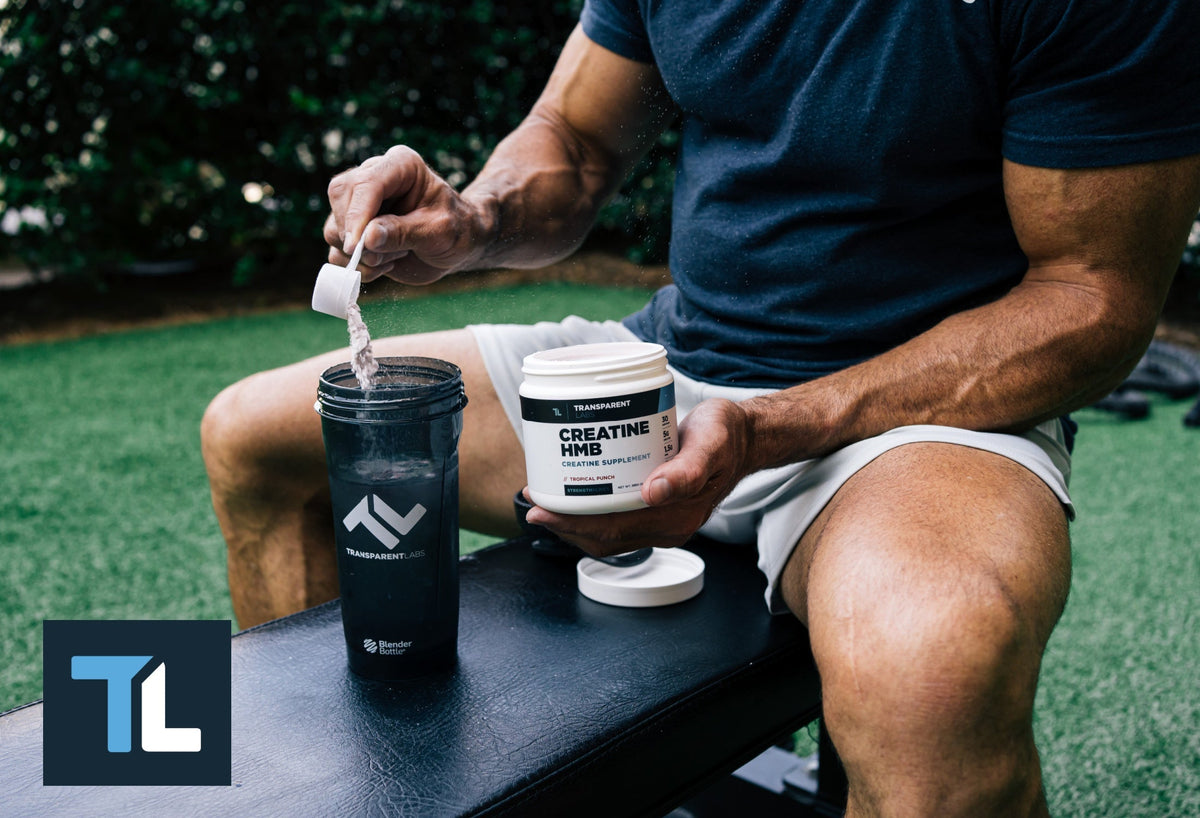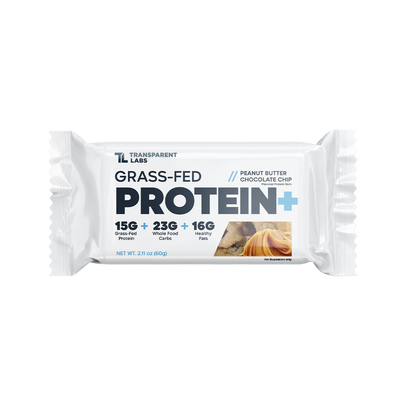Creatine HCl vs. Monohydrate: Is There a New Gold Standard?

Creatine monohydrate supplements have stood the test of time, and for good reason, considering the multitude of studies backing the monohydrate form of creatine. But recently, creatine hydrochloride (HCl) has become a prominent creatine supplement with purported advantages over creatine monohydrate.
So, which form comes out on top in the battle of creatine HCl vs. monohydrate? This article will examine the evidence behind creatine HCl and compare how it stacks up against creatine monohydrate for building muscle mass and enhancing athletic performance.
What Is Creatine and How Does it Work?
Creatine is a naturally occurring compound found in small amounts in certain foods. The body synthesizes creatine from three amino acids (methionine, glycine, and arginine), predominantly in the liver, kidneys, and pancreas, and stores it primarily in muscle tissue as phosphocreatine/creatine phosphate.
Physiologically, creatine enhances the body’s ability to rapidly produce adenosine triphosphate (ATP). ATP is the primary energy currency of the cell and is required for muscle contractions. During short bursts of intense activity, such as weightlifting or sprinting, the stored creatine phosphate in muscles donates a phosphate group to adenosine diphosphate (ADP) to quickly regenerate ATP.
While the body produces creatine naturally, supplementing with creatine can increase muscle mass and overall athletic performance by saturating muscle creatine stores. Once muscle creatine stores are saturated, muscle cells have a larger ATP reservoir to facilitate high-intensity contractions.
In other words, taking creatine supplements increases the amount of creatine in your muscles to a "supraphysiologic" level beyond what can be (practically) achieved through diet and endogenous production.
Creatine Hydrochloride (HCl) vs. Creatine Monohydrate
Creatine is a naturally occurring molecule that the body—primarily the liver—produces via amino acids. Whereas creatine monohydrate contains one molecule of crystalline water per creatine molecule, creatine hydrochloride is the same but with hydrochloric acid (HCl) in place of water. In other words, creatine HCl is the hydrochloride salt of creatine.
Since creatine is a weak base, it can only form salts with strong acids. Hydrochloric acid, the principal constituent of stomach acid, fits the bill as a strong acid that can form a salt with creatine. (Note that the native creatine molecule found in muscle cells is not bound to a hydrochloric acid molecule.) Creatine HCl is just one of many creatine salts that have been synthesized and studied.
Creatine HCl provides roughly 78% creatine by mass [1]. For comparison, pure creatine monohydrate is about 90% creatine by mass [2].
Creatine HCl has distinct chemical properties that impart theoretical advantages over creatine monohydrate. For one, the HCl form of creatine is much more soluble in water than the monohydrate form [3]. Thus, a significantly lower volume of liquid can fully dissolve an efficacious dose of creatine HCl.
Creatine HCl also exhibits superior permeability and absorption across the intestinal epithelium, making it more bioavailable than creatine monohydrate [4]. Therefore, relatively small doses of creatine HCl should—in theory—produce ergogenic effects commensurate to those of much larger amounts of creatine monohydrate.
Here's a table comparing the properties of creatine HCl vs. monohydrate:
| Property | Creatine Monohydrate | Creatine HCl |
|---|---|---|
| Effective Dosage | 3-5 grams per day | 1-2 grams per day |
| Solubility in Water | Low | High |
| Absorption Rate | Moderate | Potentially Faster |
|
Common Side Effects |
Mild Bloating, Gastrointestinal Distress (associated with loading doses) | Minimal Bloating, Less Water Retention |
| Cost | Lower | Higher |
On paper, it seems that creatine HCl has a clear upper hand over creatine monohydrate. But is that really the case when we look at the scientific evidence?
Research Summary of Creatine HCl vs. Monohydrate Supplements
Currently, there are only a handful of studies directly comparing the efficacy of creatine HCl vs. monohydrate. In general, when the doses of creatine itself are matched between creatine HCl and monohydrate supplements, there are no significant differences between outcome measures (e.g. lean body mass changes and one-rep max strength).
Much of the current literature suffers from limitations such as short study duration, small numbers of participants, and conflicts of interest that are partial to creatine HCl [5]. If anything, the evidence still weighs heavily in favor of creatine monohydrate as the preferred form for sports nutrition [6].
Nevertheless, new research will continue to uncover the promises (and pitfalls) of so-called novel forms of creatine, like creatine HCl. Until then, it's probably best to stick with creatine monohydrate before branching out to more "exotic" options.

What Are the Alleged Advantages of Creatine HCl vs. Monohydrate?
Creatine monohydrate is slightly soluble in water (at room temperature and neutral pH); a full liter of water is needed to fully dissolve just under 14 grams of creatine monohydrate [7]. On the contrary, creatine hydrochloride (HCl) exhibits 41-fold greater water solubility than creatine monohydrate [8].
Therefore, supplementing creatine HCl may be less likely to produce some of the side effects associated with creatine monohydrate supplementation, specifically gastrointestinal discomfort (e.g., bloating).
Naturally, companies are marketing creatine HCl as superior to creatine monohydrate—often claiming it's a "bloat-less" form of creatine. But this is somewhat misleading for three main reasons:
-
Solubility is now known to be a trivial factor in the tissue uptake of creatine supplements [9].
-
Water retention and the associated weight gain from creatine supplementation can be considered a proxy of efficacy, given that creatine draws water into muscle cells to foster an anabolic milieu [10].
- Creatine monohydrate supplements do not necessarily cause bloating; water retention happens only during the initial loading phase when large amounts of water are necessary to solubilize the higher doses of creatine monohydrate [11].
- Virtually no evidence suggests that maintenance doses of creatine monohydrate (e.g. 3 to 5 grams per day) cause excess water retention.
Creatine Supplementation: Is a Loading Phase Necessary?
The goal of creatine supplementation is to saturate muscle creatine stores fully. As such, a creatine-loading phase can help expedite the process of saturating muscle creatine.
Intuitively, individuals with larger amounts of lean muscle mass can store more creatine. The HCl form of creatine may be ideal for those who experience gastrointestinal discomfort from consuming loading doses of creatine monohydrate.
However, it's not absolutely necessary to load creatine hydrochloride (nor monohydrate, for that matter). Check out this article on Creatine Loading for further guidance.
Creatine Monohydrate vs. HCl: Which is the Best Creatine Supplement?
Creatine monohydrate continues to be the most studied sports supplement (literally), followed closely by good ol' caffeine. While creatine HCl is arguably the best of the "novel forms" of creatine on the market, more research is needed before we conclude that it should supplant creatine monohydrate as the "gold standard" of creatine supplements.
As noted earlier, most gym-goers and athletes interested in creatine supplementation should start by taking creatine monohydrate before diving into the deep end of the pool. Frankly, it's tough to go wrong with creatine monohydrate.
Transparent Labs Creatine HMB is a prime example of a high-quality creatine supplement. Not only does it provide the creatine monohydrate, but also hydroxy-methylbutyrate (as myHMB®), vitamin D3, and BioPerine® for enhancing muscle growth, recovery, and ingredient absorption. Even better, the product is gluten-free, non-GMO, and free of artificial flavors, sweeteners, and colors.









